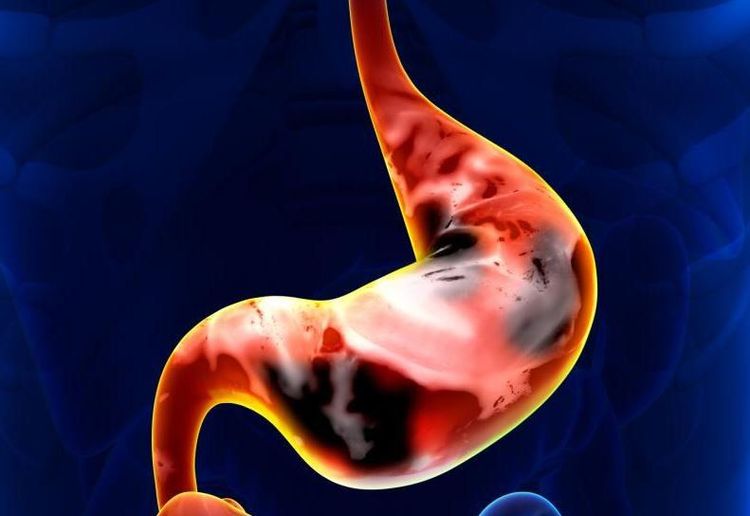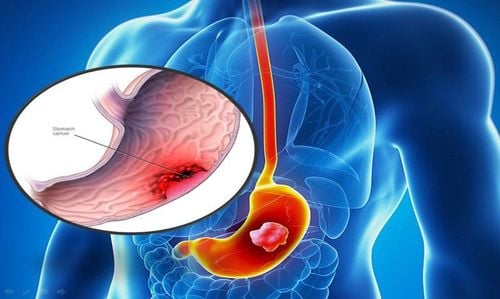This is an automatically translated article.
The article was consulted with Specialist Doctor I Dong Xuan Ha - Gastroenterologist - Department of Medical Examination & Internal Medicine - Vinmec Ha Long International General Hospital.Stomach cancer is a common disease, with the second leading cause of death in the world. The early diagnosis and treatment of stomach cancer will help improve the mortality rate in patients. Currently, the pepsinogen test is the noninvasive screening solution used for risk assessment and early detection of gastric cancer in at-risk patients.
1. Why is it important to diagnose stomach cancer early?
Early gastric cancers are tumors confined to the mucosa or submucosa, regardless of whether or not metastases are present. Prognosis of early gastric cancer is very good because distant metastases are rare.Precancerous: are high-grade dysplastic lesions, but not yet cancerous, these lesions will most likely progress to cancer, it's only a matter of time.
Stomach cancer classification system of Japan Stomach Cancer Society recently divided early gastric cancer into 3 types based on macroscopic picture:
Type I (convex): Organization of convex cancer on the mucosa, mushroom-shaped, polyp-like, easy to bleed to the touch; Type II (flat or surface body): Includes 3 subtypes: flat, flat, and flat; Type III (ulcer type): Lesions have a marked depth. This type of gastric cancer is often shallow, rough, dirty, and the mucosa around the ulcer is irregular. The earlier stomach cancer is detected, the better the prognosis. Endoscopic mucosal dissection (ESD) can be used to cut precancerous or early-stage cancer monoliths. This helps patients avoid a gastrectomy, recover faster, not affect the function of the stomach later, contributing to limiting complications and mortality of stomach cancer. However, early stomach cancer has almost no symptoms, so it is important to think about and perform tests to detect stomach cancer early.
2. Pepsinogen in non-invasive gastric cancer screening:
Pepsinogen concentration < 70 ng/mL and pepsinogen I/pepsinogen II ratio < 3 are useful indicators in detecting gastric cancer, with sensitivity 84.6% and specificity of 73.5%.Quantification of Pepsinogen is a pro-enzyme secreted by intestinal mucosal cells into the gastric lumen, activated to the active form - pepsin, by the hydrochloric acid of the stomach. Pepsin will help hydrolyze food proteins into substances that are easily absorbed by the intestinal tract.
Levels of serum pepsinogen I and II help to examine the state of the gastric and duodenal mucosa in terms of both form and function. When the serum pepsinogen I index decreased, it showed that the gastric mucosa was damaged and reduced function. The concentration of pepsinogen II is little changed, so it is based on the ratio of PGI/PGII to help predict the extent of damage to the gastric mucosa, so this ratio is used in early gastric cancer screening.
In gastric cancer, it has been identified that the pathological process of cytological damage develops in the following order: chronic gastritis, atrophic chronic gastritis, metaplasia, dysplasia, and finally gastric cancer. Therefore, the quantification of serum pepsinogen may allow early detection of patients at risk or gastric cancer.

3. Limitations of Pepsinogen in non-invasive gastric cancer screening
Pepsinogen is considered a "serum cancer marker". Currently, there is not a single serum cancer marker that has been identified sensitively and specifically for the diagnosis of gastric cancer.Therefore, besides the quantification of Pepsinogen and the pepsinogen I/pepsinogen II ratio, there are several other serological tests such as CEA (Carcinoembryonic Antigen), CA 19-9 (Cancer Antigen 19-9).
Upper gastrointestinal endoscopy combined with biopsy is also the gold standard in the diagnosis of gastric cancer. Currently, it is possible to diagnose stomach cancer early by applying the following techniques:
Coloroscopy; Fluoroscopy; Magnified endoscopy. In summary, the pepsinogen test is a noninvasive screening solution used for risk assessment and early detection of gastric cancer in patients at risk. Therefore, for those who are at risk of stomach cancer, they should have tests to screen.
In addition to using quantitative pepsinogen test, cancer screening is also a measure to help diagnose the disease at an early stage, thereby helping patients receive early treatment and avoid dangerous complications.
Gastrointestinal cancer screening is a scientific and effective measure for early detection of gastrointestinal cancers (esophageal cancer, stomach cancer, colon cancer) and giving the best treatment regimen. . Currently, Vinmec International General Hospital has a screening package for esophageal and gastric cancer that combines clinical and paraclinical examination to bring about the most accurate results possible.
When you are screened for esophageal and stomach cancer at Vinmec, you will receive:
Specialized examination of gastroenterology with an oncologist (by appointment). Endoscopy of the stomach and esophagus with an NBI endoscope with anesthesia. Peripheral blood count (laser counter). Automated prothrombin time test. Automated thrombin time test. Activated Partial Thromboplastin Time (APTT) test using an automated machine. General abdominal ultrasound.
Please dial HOTLINE for more information or register for an appointment HERE. Download MyVinmec app to make appointments faster and to manage your bookings easily.














